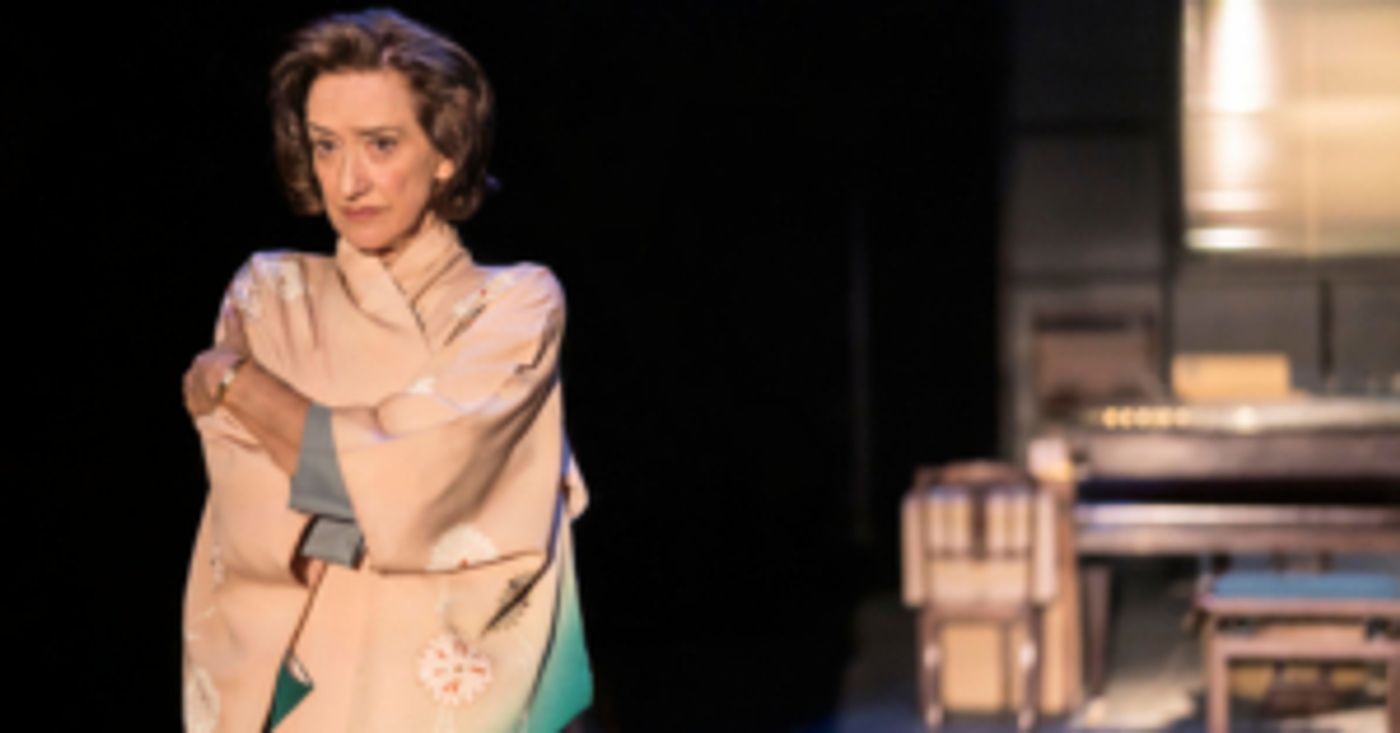Review: HEDDA TESMAN, Minerva Theatre, Chichester Festival Theatre

![]() Hedda is bored - more than that really. She's wallowing in a middle-aged, middle class ennui that borders on depression. Much of that can be laid at the feet of a marriage that she kinda fell into thirty years ago and a husband, George, who has forged a career as a minor academic and major dullard.
Hedda is bored - more than that really. She's wallowing in a middle-aged, middle class ennui that borders on depression. Much of that can be laid at the feet of a marriage that she kinda fell into thirty years ago and a husband, George, who has forged a career as a minor academic and major dullard.
The couple move back to England after a two year sojourn in Boston, Hedda is reunited with their daughter, Thea (a relentlessly angry Natalie Simpson), whose animus towards her is undiminished by the passage of time. Thea is besotted by Elijah, a recovering alcoholic but brilliant and ambitious scholar who has a past "connection" with Hedda and whose work has, shall we say, "inspired" George. It's an incendiary mix and soon the flames are licking at these fragile relationships.
Cordelia Lynn has, of course, updated Ibsen's Hedda Gabler by moving the action to the present day, advancing Hedda's age and flipping one or two other characters. It works only partially, the pull of the source material gnawing away at the credibility of the characters.
Why would Hedda (witty, disdainful and impetuous as played by Haydn Gwynne) put up with it all, her alienation pretty much voluntary? What is so fascinating about Elijah, of whom Irfan Shamji empties any charisma or charm (indeed, there's no charm in any character, which does make for a long 150 minutes)? Why is the lascivious neighbour, Judge Brack (Jonathan Hyde all but twirling his moustache at Hedda), so halfhearted about a woman whom he has decided is worth pursuing? (And he really should know the difference between a trial and an inquest).
Perhaps the biggest flaw is the complete failure to acknowledge the enormous change in popular awareness of mental illness and the diminishing (if not wholly diminished) stigma attached to its treatment. Aside from one throwaway line (which could have come from the 1970s), there's no reference to therapeutic interventions, despite two years in Boston, surely one of the most Prozaced cities in the world.
Anthony Calf gives the most understated performance of the night as George, all bumbling goodwill, but emanating tedium from beard to brogues. Cleaner, Bertha, interested me more than the principals, but Rebecca Oldfield isn't given much more to do than observe the craziness with a wry half-smile and dispense wisdom from her hostile home in the gig economy.
It's all well done of course, with Anna Fleischle's set almost offensive in its stultifying drabness, but the writing never quite gets to grips with its ambition, at times dipping into one of two soapy cliches. It did make me want to see the original play though in which I'm sure things must hang together a little more coherently.
Hedda Tesman continues at the Minerva Theatre, Chichester until 28 September and then at The Lowry from 3 October to 19 October.
Photo Johan Persson
Reader Reviews
Videos

